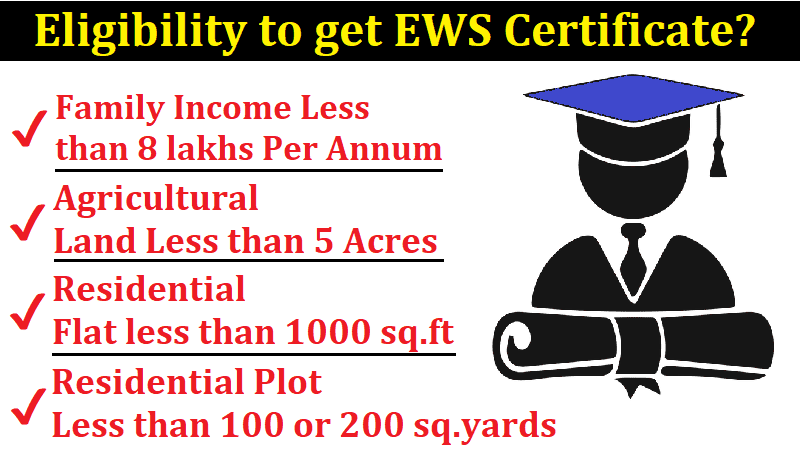Description

Copyright infringement is not intended
Context: The Supreme Court to hear petitions on criteria to identify 10% EWS quota candidates.
Details
- The Supreme Court will hear petitions challenging the validity of criteria identifying the Economically Weaker Section (EWS) for providing 10% reservation to such persons belonging to the general category in jobs and education.
- A group of doctors challenged a government notification issued in July last year applying 10% EWS quota and 27% quota for other backward classes (OBC) in the all-India quota seats in post-graduate NEET admissions.
- In January this year, the top court upheld the validity of OBC quota in Neet-PG admissions but raised concerns over the criteria for identifying EWS quota.
About Economically Weaker Section (EWS)
- Economically Weaker Section (EWS) in India is a subcategory of people belonging to the Economy Based Un-Reserved Category having an annual family income less than ₹8 lakh and who do not belong to any category such as SC/ST/OBC across India.
- Candidates who do not fall under SC/ST/OBC and fulfills the EWS economic criteria are to be part of the EWS category.
- In January 2019, the Union Council of Ministers approved a 10% reservation in government jobs and educational institutions for the Economically Weaker Section (EWS) in the General category.
- The cabinet decided that this would be over and above the existing 50% reservation for SC/ST/OBC categories.
- In January 2019, The Constitution (124th Amendment) Bill, 2019, was tabled in the Lok Sabha and it was passed on the same day.
- President RamNath Kovind gave assent to the bill on 12 January 2019, and a gazette was released on the bill, which turned it into law.
- The 103rd Amendment of the Constitution of India amended articles 15(6) and 16(6) of the Constitution of India to permit 10% reservations to the EWS category students among the unreserved category or General category students.
- A number of state cabinets approved the law and announced their intention to implement the 10% EWS reservations.
Eligibility Criteria under EWS Reservation
- The eligibility to get the EWS certificate is not only purely based on annual family income but also based on the held property.
- The income limit has been set by the central government for admission to central government-owned colleges and jobs offered by the central government.
- State governments are given the authority to change the eligibility criteria and also to extend the income limit further for candidates seeking reservation under EWS category, which will be valid only in state-owned colleges and state government's jobs as deemed fit for the respective states.
- Criteria for identifying EWS quota
- Candidate's annual family income must be less than Rs. 8 lakhs per annum.
- Their family must not own more than 5 acres of agricultural land.
- The residential flat area should be below 1000 sq ft.
- The residential plot's area should be below 100 square yards if in a notified municipality sector.
- The residential plot's area should be below 200 square yards if in a non-notified municipality sector.
Significance of EWS Reservation
- People belonging to the Economically Weaker Section now get 10% reservation in education and government jobs of India (vertical reservations) similar to OBC, SC, ST.
- This reservation weakened the pace of many reservation agitations such as the Jat reservation movement, Patidar reservation movement, and Kapu reservation movement.
Concerns
- Aspirants from the EWS category are not fully satisfied with this reservation because it does not include many benefits like age relaxation, fee relaxation, etc.
- In Indra Sawhney Judgement, a nine judge bench had struck down a provision that provided 10% reservation for the economically backward on the ground that economic Criteria Cannot be the Sole basis to determine backwardness.
- In Nagaraj judgment, a Constitution Bench ruled that equality is part of the basic structure of the Constitution. It is said the 50% ceiling, among other things, was a constitutional requirement without which the Structure of equality of opportunity would Collapse.
- Another issue is whether reservation can go to a Section that is already adequately represented in Public Employment.
- One of the Criteria has an income limit less than 8 lakh Per Annum, National Sample Survey Shows that the annual per Capita expenditure for 99% of households fall under this limit, even if we apply all the other Criteria for exclusion the bill would Still Cover over 95% of households.
Way Forward
- Future economic growth in India is going to come from the Private Sector and entrepreneurship. In order to ensure that all Indians, regardless of caste, Class and religion, are able to take part in economic growth, we must focus on basic Skills. We need to focus on reducing inequalities where they 1st emerge, within primary Schools.
https://www.hindustantimes.com/india-news/sc-to-hear-petitions-on-criteria-to-identify-10-ews-quota-candidates-on-april-28-101647892567144.html










